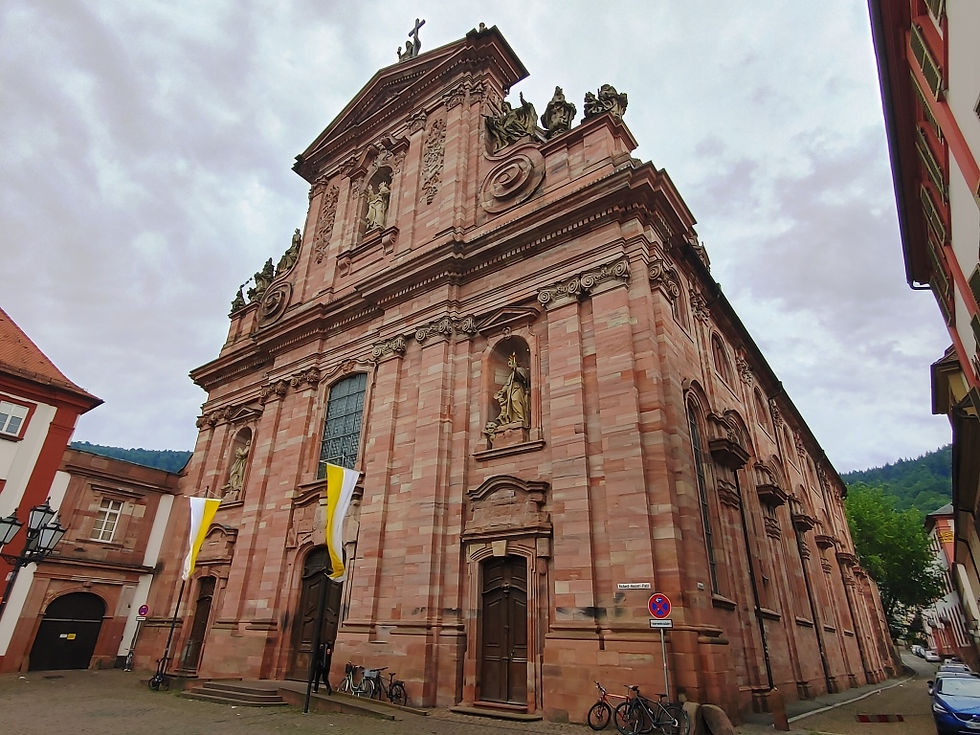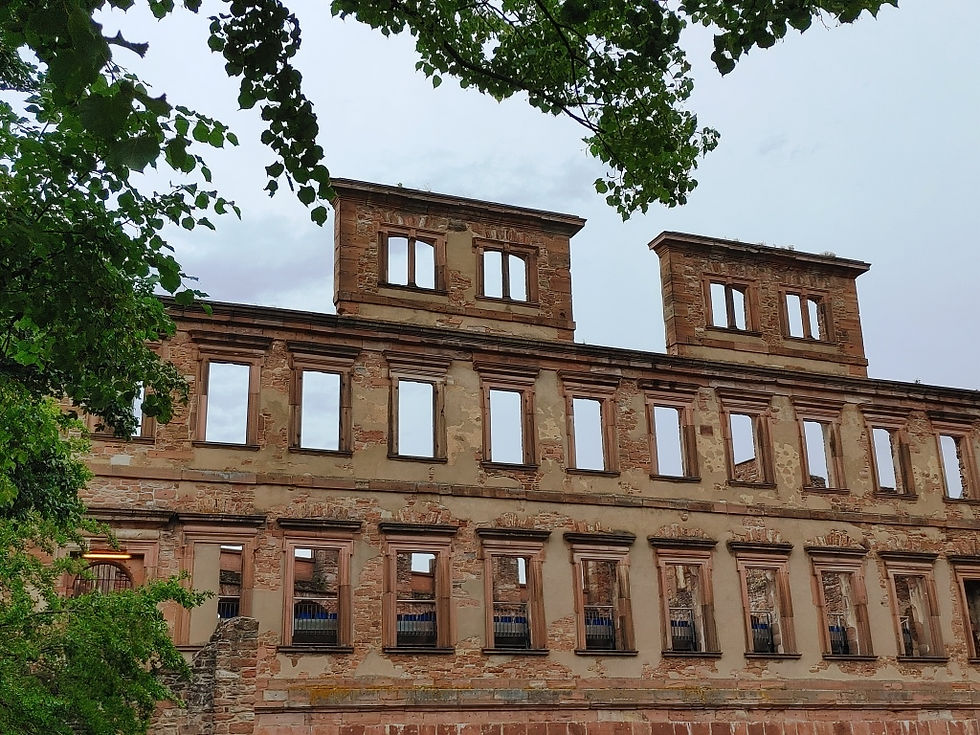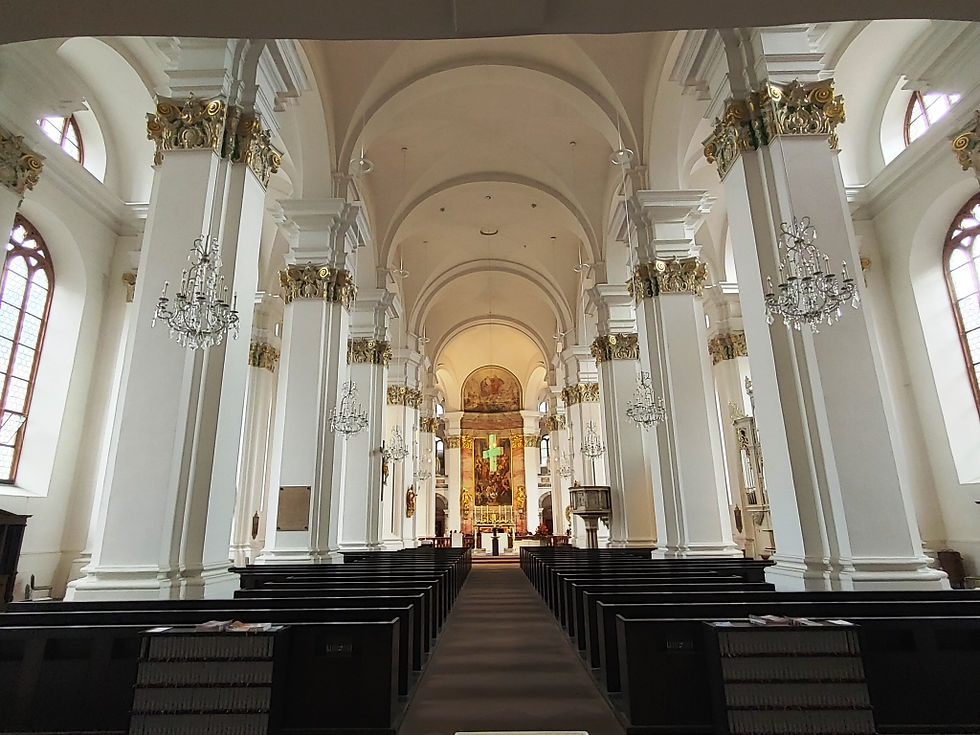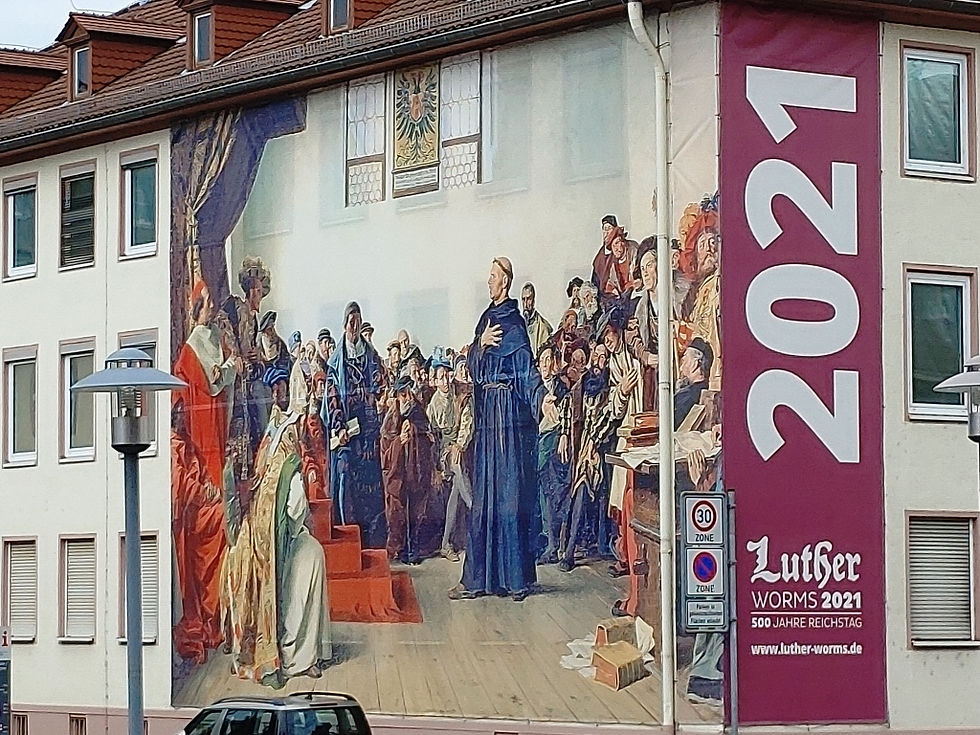Heidelberg and it’s Castle
- pswartz
- Jun 11, 2022
- 2 min read


Today we spent the day in the city of Heidelberg located in the south-west of Germany. It sits on the Neckar River not far from where the Neckar joins the Rhine River. Heidelberg has a population of about 160,000 people with a quarter of them being students. This is because Heidelberg University is located here. The university, founded in 1386, is Germany's oldest and one of Europe's most reputable universities. The city has also been a hub for the arts, especially literature, throughout the centuries, and it was designated a "City of Literature" by the UNESCO Creative Cities Network.

Heidelberg has lots to see and do including Heidelberg Castle, the Philosophers' Walk, and the Baroque old town.
On March 29, 1945, German troops left the city after destroying three arches of the old bridge, Heidelberg's treasured river crossing. They also destroyed the more modern bridge downstream. The U.S. Army entered the town on March 30, 1945. The civilian population surrendered without resistance.

Heidelberg, unlike most German cities and towns, was spared from Allied bombing raids during the war. A popular belief is that Heidelberg escaped bombing because the U.S. Army wanted to use the city as a garrison after the war; but, as Heidelberg was neither an industrial center nor a transport hub, it did not present a tactical or strategic target.

The castle is a mix of styles from Gothic to Renaissance. This castle goes back a few years – over 600 actually. Prince Elector Ruprecht III (1398–1410) erected the first building in the inner courtyard as a royal residence. The building was divided into a ground floor made of stone and framework upper levels. Another royal building is located opposite the Ruprecht Building: the Fountain Hall. Prince Elector Philipp (1476–1508) is said to have arranged the transfer of the hall's columns from a decayed palace of Charlemagne from Ingelheim to Heidelberg.

In the 16th and 17th centuries, the Prince Electors added two palace buildings and turned the fortress into a castle. And on it went adding more and more as the years went by. So today it’s a great place to visit with some buildings still intact but many others in ruin. The castle looks over the entire city of Heidelberg and the Neckar Valley.
(Click on the pictures to enlarge)














Comments